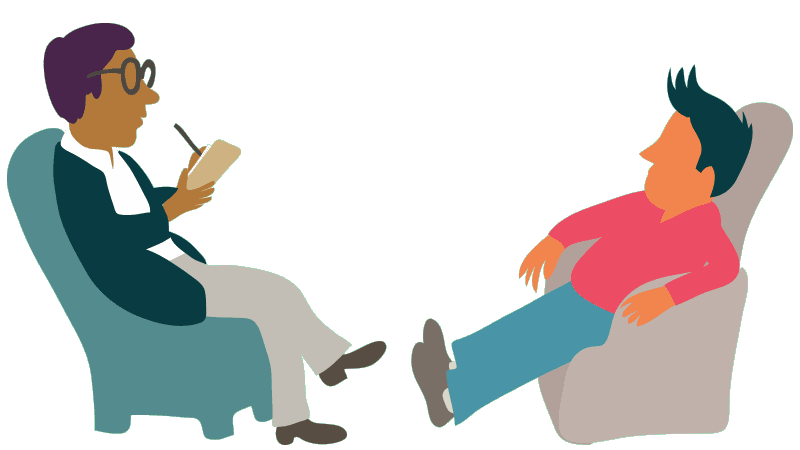When someone gets a degree in clinical psychology they are being trained as a psychotherapist. A psychotherapist is someone who is licensed to assist in helping another person out of neurotic / self-defeating patterns of thinking and behaving that are re-creating painful, ongoing issues such as: long term depression or anxiety, relationship issues, addictions, parenting concerns, career blocks, etc. More simply put, a psychotherapist is doing what we refer to as “talk therapy.” When you are “in therapy” or “seeing a therapist” you are being treated by someone with a degree in clinical psychology and who is a licensed psychotherapist. You can think of the term psychotherapist as similar to how the term “doctor” is used in the medical field. Someone might be a cardiologist, a podiatrist, a chiropractors, etc.—but they are all doctors. Similarly there are a number of licenses in clinical psychology that would qualify someone to the title of psychotherapist.

A psychotherapist might get their Ph.D. in clinical psychology and become a Licensed Psychologist, another person could attain their Master’s Degree in clinical psychology and become a Licensed Marriage and Family Therapist (an LMFT), a third option is to receive a Master’s Degree in clinical social work and become a Licensed Clinical Social Worker (an LCSW). Each of these are licensed psychotherapists and each has a different emphasis on ways to treat a person seeking psychotherapy. If you are looking for a pscyhotherapist, don’t worry too much about the kind of license someone holds, just be sure they are licensed. Truth be told, most psychotherapists learn the bulk of how to do therapy years after they are licensed. It is in the practicing of therapy that a therapist becomes truly specialized. In selecting a psychotherapist look for someone who is trained in whatever you need help with (i.e. depression, career, infertility, LGBT issues, anxiety, couples, bulimia, anger, etc.)
When someone gets a degree in research psychology they are not being trained as a psychotherapist. They are research psychologists who do studies on specific populations to assist organizations with better functioning. The following is a list of research psychologists:
A criminal psychologist researches the causes and effects of criminal behaviors or the effectiveness of different interventions on crime. A criminal psychologist may work in correctional facilities or do consulting services for the judicial proceedings.
Health psychologists apply psychological principles in studying health and illness. They study factors such as: stress, pain, coping, health behaviors, disease, health disparities, health communication, the health care system, and health policy. These people use their research to promote healthier life styles and work with the healthcare system to create more effective practices.
Comparative Psychologists study the biology of behavior: learning, emotions, cognitions, memory centers, and motivation. Comparative psychologists study both humans and other animals, looking for contrasts and similarities. These studies can yield information that helps in the study of evolution and development.
Social psychologists study things such as: emotion, attraction, and interpersonal interactions. Their research extends into many areas of society such as education, business, and public policy.

Carl Clay is a health blog author who has been writing about nutrition, fitness and healthy living for over 10 years. He also loves to run, hike and bike with her wife.












